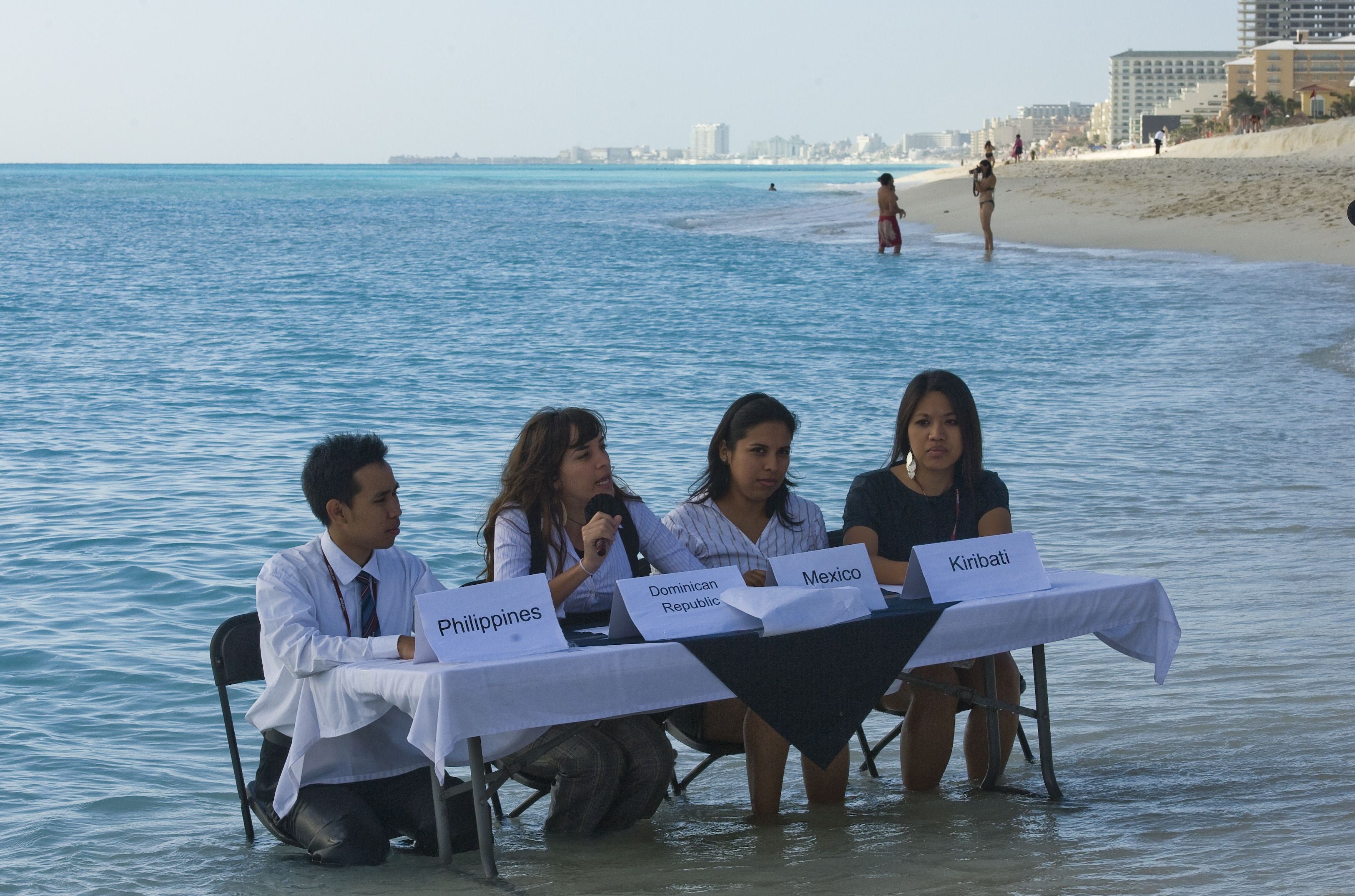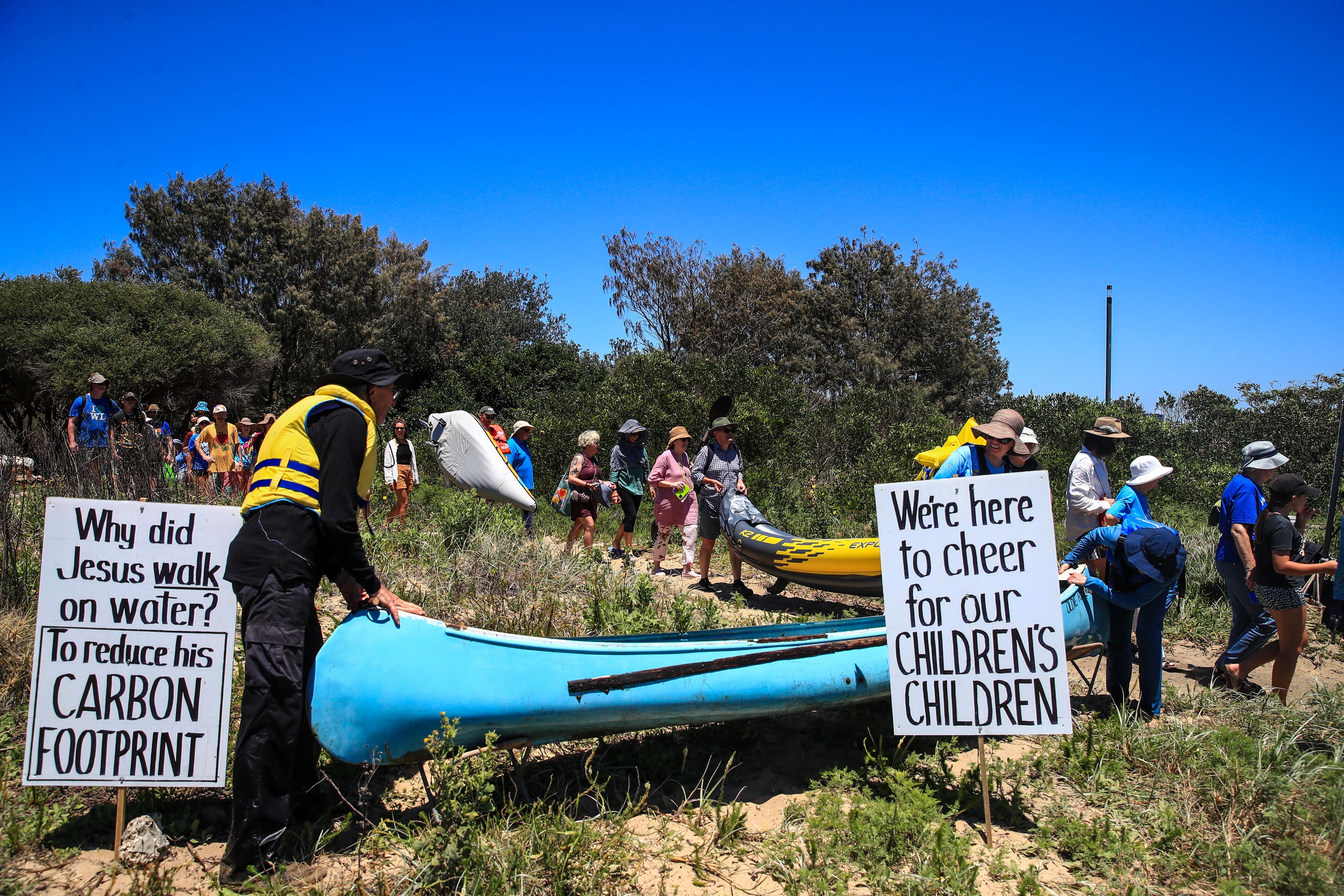Australia’s Federal Court has ruled that the national government owes no legal duty to protect the Torres Strait Islands or their Indigenous inhabitants from the effects of climate change, in a landmark judgment that campaigners say exposes critical gaps in the country’s legal framework.
Justice Michael Wigney dismissed the claim brought by two Torres Strait Islander elders, Paul Kabai and Pabai Pabai, who argued that the federal government had been negligent in failing to cut carbon emissions or take meaningful adaptation measures to safeguard their ancestral lands.
“The Commonwealth did not and does not owe Torres Strait Islanders the duty of care alleged by the applicants,” said Justice Wigney on Tuesday, according to SBS News. While he accepted the scientific evidence of “devastating” climate impacts on the islands, he concluded that decisions on emissions targets fell squarely within the realm of government policy, not judicial oversight.
The case was the first of its kind in Australia to argue that the federal government owed a specific legal duty to protect its citizens from climate harm under the law of negligence.
The Torres Strait Islands, a group of around 270 islands scattered between the northern tip of Queensland and Papua New Guinea, are home to about 4,000 people – more than 90 per cent of whom are Indigenous Australians. Only a few dozen islands are inhabited.

The claimants, both community leaders from the low-lying islands of Saibai and Boigu, warned that rising sea levels, saltwater intrusion, and stronger storm surges are already destroying homes, sacred burial grounds and food sources, threatening both the physical and cultural survival of their communities.
“We won’t have our culture… if Saibai goes under water, we lose everything. Our culture, our identity, our livelihood. It will all be gone,” said Mr Kabai in his submission to the court, reported News.com.au.
Mr Pabai, whose home island Boigu is also facing rapid environmental decline, told the court, “If Boigu was gone, or I had to leave it because it was under water, I will be nothing. I will become nobody.”
Sea levels in the Torres Strait region have risen by approximately 6cm per decade between 1993 and 2019, the court was told.
Despite accepting these facts, Justice Wigney said that while the damage was undeniable, it did not create a cause of action under current Australian negligence law.
He cited binding precedent and concluded: “The reality is that the law in Australia, as it currently stands, provides no real or effective legal avenue through which individuals and communities … can claim damages or other relief” for the consequences of government inaction on climate.
He added that the only available recourse for those in the plaintiffs’ position was “public advocacy and protest, and ultimately, recourse via the ballot box”, reported News.com.au.
Although the court found the Commonwealth had “paid scant, if any, regard to the best available science” in setting emissions targets under previous Coalition governments, the judge noted that the current Labor administration had set “significantly higher and more ambitious” goals, reported BBC.
The court acknowledged that Torres Strait Islanders would likely face catastrophic losses if urgent action is not taken. “There could be little, if any, doubt that the Torres Strait Islands and their traditional inhabitants will face a bleak future if urgent action is not taken to address climate change and its impacts,” said Justice Wigney.

The ruling has triggered deep disappointment among the claimants and their communities. “My heart is broken for my family and my community,” said Mr Pabai after the judgment. “This pain isn’t just for me – it’s for all people, Indigenous and non-Indigenous, who have been affected by climate change.”
“This is emotional,” said Mr Kabai. “We’re not going to stop here.”
From Cairns, several hundred kilometres from his home, Mr Kabai called on Australians to unite in demanding government action. “Sea level is rising and our communities – Boigu and Saibai – they are about 1.3m above sea level, so we are sinking. It’s time now for us to keep knocking at the government’s door.”
The plaintiffs, supported by the Grata Fund – a legal charity that financed the litigation – said they are considering an appeal.
Isabelle Reinecke, the fund’s executive director, said the case was only the beginning. “The court did not say that accountability is impossible under the law, it just said that it is not ready yet,” she said according to the Australian Broadcasting Corporation. “I have a lot of hope that the law will and can develop.”
She compared the case to the historic Mabo ruling, which established Indigenous land rights after a decade-long legal battle.
Ms Reinecke welcomed the government’s post-ruling commitment to adaptation and urged it to commission studies on what those measures might entail for the Torres Strait.
Legal experts say the verdict reflects how Australia’s laws have not yet caught up with the complex realities of climate change and human rights.
Riona Moodley, a researcher at the University of New South Wales’s Institute for Climate Risk and Response, told BBC News that the ruling “was definitely a setback”, but added: “The reality is that Australian law will need to adapt to meet the challenges of climate change.”
Her colleague Wesley Morgan said the case should galvanise political leaders. The government “must listen to the science telling us we need to be as ambitious as possible in the decade ahead.”
Energy minister Chris Bowen and Minister for Indigenous Australians Malarndirri McCarthy acknowledged the significance of the case, saying in a joint statement: “We understand that the Torres Strait Islands are vulnerable to climate change, and many are already feeling the impacts.”
Criticism was also directed at the previous government. The judge found the Coalition’s emissions targets in 2015, 2020 and 2021 failed to engage with the best scientific advice.
However, opposition spokesperson Dan Tehan defended the former administration, saying it had reduced emissions by 28 per cent from 2005 levels by 2021–22, and accused the Labor government of failing to present a credible implementation plan.


